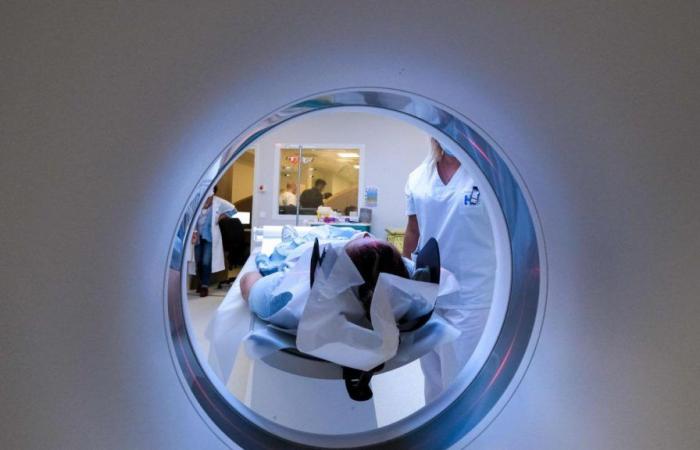After the death of Michel Blanc, victim of a violent allergic reaction, before an x-ray examination, many of you expressed your fears about contrast products. This medication used in radiology which makes it possible to better visualize an organ or a lesion on x-rays. Professor Olivier Clément, head of the radiology department at the European Georges-Pompidou hospital in Paris, was the pilot of a reference study (Cirtaci) on allergies to contrast products. He returns to these allergic reactions “ very rare, this reaction is also completely unpredictable ».
– How can you know, before doing an exam, if you are allergic to contrast products? What if you are at risk of having a severe allergy?
Professor Olivier Clément: “There is no way of knowing if we are going to have an allergic reaction, that is to say an immunological reaction to a contrast product. In hypersensitivity reactions – that is to say inducing clinical signs of allergy: urticaria, asthma, shock, etc. –, we distinguish between allergic hypersensitivity reactions (you are allergic to one product, sometimes two, but not to all). These are unpredictable. And non-allergic hypersensitivity reactions for which whatever the product, the patient will be likely to have a reaction, most often moderate (urticaria). The only known risk factor is the history of reaction. It is obvious that the patient who has had a reaction will be at risk of having one again, either because he is allergic to the product or because he is likely to have irritant reactions. »
– Which populations are considered at risk?
Professor Olivier Clément: “Allergic areas” (allergy to strawberries, fish, antibiotics, etc.) are not a risk of allergy to contrast products. On the other hand, a patient who is asthmatic or has a so-called “atopic” condition manifested, for example, by hives or hay fever, has a greater risk of having a hypersensitivity reaction. And that’s why some radiologists premedicate these patients, for example, with antihistamines. But this premedication is only used to prevent hives, it cannot be used to prevent a serious reaction. So, we do not recommend it. If you have a history of reaction to a contrast agent, you should seek assessment by an allergist. If the allergic mechanism is retained, the contrast medium is contraindicated for life. »
– How many different contrast media are there? And can we have them tested by an allergist before having an MRI or CT scan?
Professor Olivier Clément: “There are five gadoline contrast products for MRI and 6-8 iodine products for scanners. We do not do a prospective test with the allergist. This only tests patients who have had a reaction to a product. Performing tests on patients who have never had a contrast agent would result in too many false positives. »
– Are severe allergies common? And are they necessarily fatal?
Professor Olivier Clément: “The more serious it is, the rarer it is. This is the classification of Ring and Messmer (1977): grade 1, urticaria; grade 2, general signs; grade 3, heart rhythm disturbances; grade 4, cardiac arrest. Of the 6 million patients who have a contrast product injected each year in France, there are around a hundred anaphylactic shocks which will recover with good treatment and unfortunately a few deaths. »
– And if a patient refuses the injection of the product, is there an alternative?
Professor Olivier Clément: “No, it’s a waste of chance to establish the diagnosis. »
– How can we reassure worried patients or those who are at risk of no longer being examined for fear of having a severe allergic reaction?
Professor Olivier Clément: “These patients must understand that the risk is minimal. Radiology practices and radiologists who work in hospitals are aware of this problem and know how to react in the event of a problem. Be careful, however, not to do a CT scan or MRI if you are experiencing an allergic asthma flare-up. »
The National Agency for the Safety of Medicines and Health Products (ANSM) recalls, for its part, “that medical monitoring of patients during and after the administration of the contrast product (30 minutes) must be put in place and the means necessary for emergency resuscitation must be immediately available in the event of serious allergic reactions. »
A question? Please write to us at [email protected]






